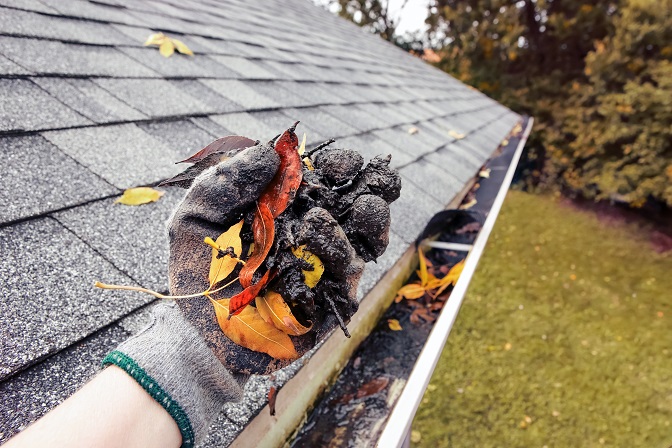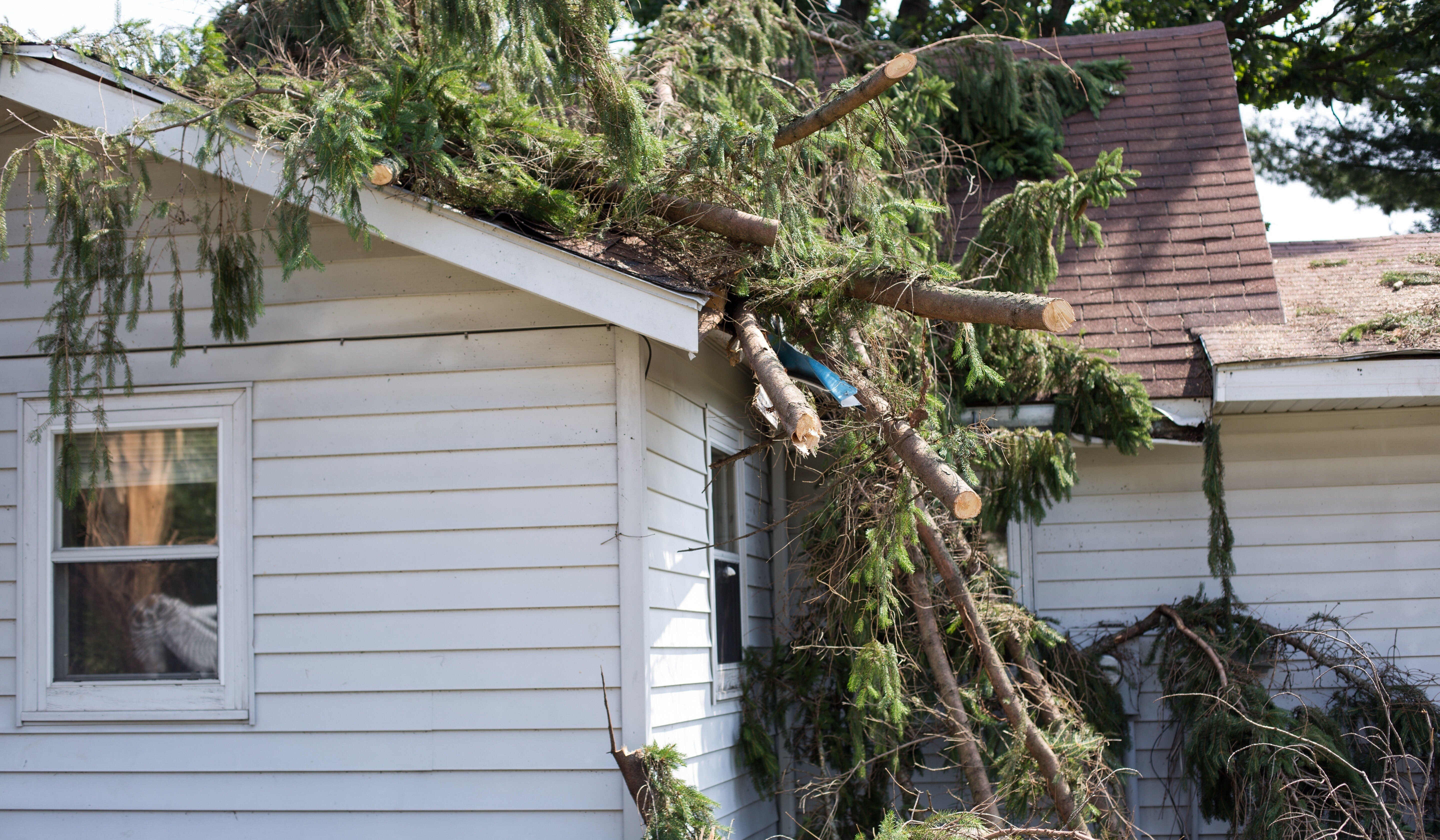
Safety First
If you think you have damage from recent weather events, there are essential steps you should take right away. Your safety and your family's safety are most important to us. Always consider these safety tips before proceeding with property damage after severe weather.
First Steps Following Property Damage
Take these steps to ensure the safety of you and your family and check out our severe weather claims FAQs:
- Make sure the weather event is entirely over. Stay tuned to NOAA Weather alerts for Virginia or a local alert system for current information and instructions.
- Contact your loved ones, and let them know you're okay.
- Wear long sleeves, long pants, and sturdy shoes while assessing the damage.
- If you haven't lost power but smell something burning, see frayed or sparking wires, or suspect a gas leak, turn off the main circuit breaker, turn off the natural gas supply, and remove propane tanks.
- If anyone is trapped, have them cover their mouth with clothing to avoid breathing dust. Instead of shouting, have them try to send a text, bang on a pipe or wall, or use a whistle.
- Stay away from downed power lines and unstable structures. Contact authorities to report both.
- Be aware of insurance scammers following a severe weather event. Avoid drive-by repair solicitations.
- Do not drive through any water crossing a roadway- a few inches of moving water can move a car. Avoid this dangerous drowning risk!
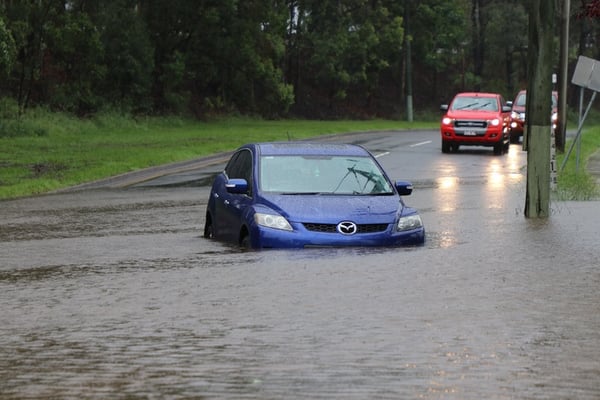
Tips if you have property damage
1. Take immediate measures to protect your home, car, or other property
You can make temporary repairs to prevent further damage and secure your property. Save those receipts for reimbursement but hold off on complete repairs until one of our adjusters can assess your situation, including tree removal and clean-up that has caused property damage.
2. Call your independent agent. Your agent can help you with your specific situation. Have your policy number and a list of questions ready: Am I covered? What's my deductible? When can I expect an adjuster to come to inspect the damage? What are the next steps?
3. File a Northern Neck Home Insurance claim one of three ways:
- Online through the Online Member Portal
- With your local agent
- Contact the Northern Neck Insurance 24/7 Claims Hotline at 877-968-7252
4. What if my house is unlivable? If your home has severe damage and is unsafe to live in, make temporary arrangements to stay in a secure location. Save all living expense receipts, including hotel and food bills.
5. Make use of your home inventory to record damage or loss. A home inventory is a valuable record of the contents of your home you have in case of a home damage claim. There are several free and useful apps to create one using your phone or tablet easily. If you don't have a home inventory, create a running list of damaged items, or use a printed list. Take pictures or videotape damage, and do not throw away anything until an adjuster has visited.
6. Be sure to complete the required claim forms promptly to avoid delaying your claim. Also, keep in mind we're working hard to take care of our members. Major weather events can result in many claims and can delay normal claims processing timelines. Your patience may be needed and is appreciated.
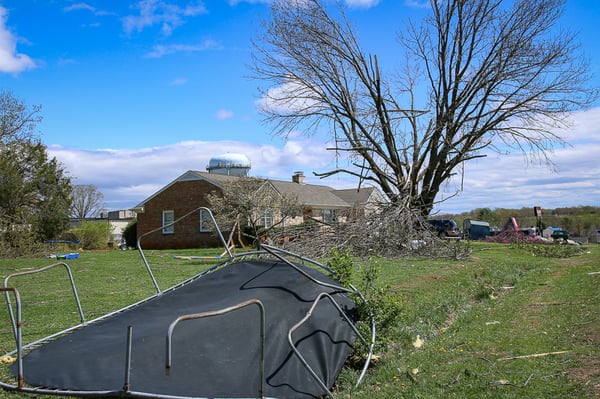
What's covered by home and car insurance?
Every policy varies depending on the coverage you chose with your agent, including limits and deductibles but standard home insurance can provide coverage to repair or replace your home and its contents in the event of damage from severe weather such as lightning, wind, hail, tornados, and hurricanes. Other covered damage could come from other things like a falling tree.
Keeping that in mind and consulting your local insurance expert and your policy for specific coverage details, here are some general rules of thumb:
Home Insurance Coverage FAQs
- What if my tree fell on my neighbor's house? If a fallen tree, play equipment, or another object has damaged your neighbor's house or property, their home insurance handles the claims and pays for the damage. Likewise, if your neighbor's tree falls on your house, your home insurance pays. We highly recommend both parties file a claim and allow their respective insurance providers to sort through the details. If a tree fell that should have been removed long ago due to death, rotting, and/or decay, the owner may be found liable. In that case, liability coverage may step in.
- If your tree fell but doesn't damage anything, you would most likely pay to have it removed or remove it yourself.
- If your roof has wind or hail damage, or siding, gutters, windows, and any contents inside, your standard homeowners insurance will cover the loss as specified by your policy. That includes damage directly resulting from the initial loss, like water damage from rain blowing through a damaged roof.
- Home Flooding is not covered. However, water damage can be covered if it occurs as a result of storm damage to your home.
Car Insurance Coverage FAQs
- What if a tree damaged my car? Any damage to your vehicle resulting from the weather is protected by comprehensive car insurance. That includes damage from a tree branch or flying debris if you're driving when it occurs or your car was parked. And remember, this includes storm damage from your neighbor's tree as well as flooding of your car as long as you opt to add optional comprehensive coverage. You can speak with your agent to be sure you have it.
- If you had a car accident during the severe weather, damages would be covered by the collision coverage on your policy, depending on who is at fault if another driver is involved.
If you're reading this, you or someone you care about probably had damage caused by Virginia's severe weather. We're sorry if you're experiencing a difficult time and know insurance claims can be stressful. We're committed to providing you with the best experience! We are here for you.
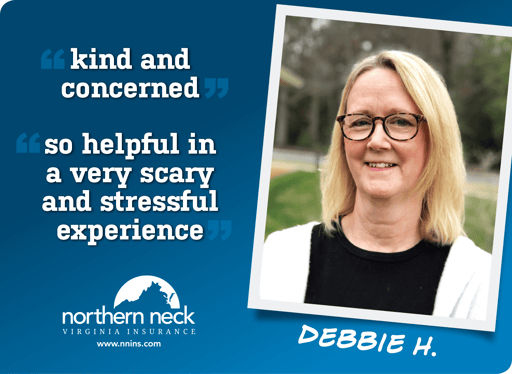
Learn more about homeowners insurance in Virginia >
Learn more about car insurance in Virginia
THE NORTHERN NECK INSURANCE INTEGRITY PROMISE — We pledge to provide straight talk and good counsel from our NNINS Virginia insurance experts through our blog. While we hope you find this to be a helpful source of information, it does not replace the guidance of a licensed insurance professional, nor does it modify the terms of your Northern Neck Insurance policy in any way. All insurance products are governed by the terms in the applicable insurance policy.

